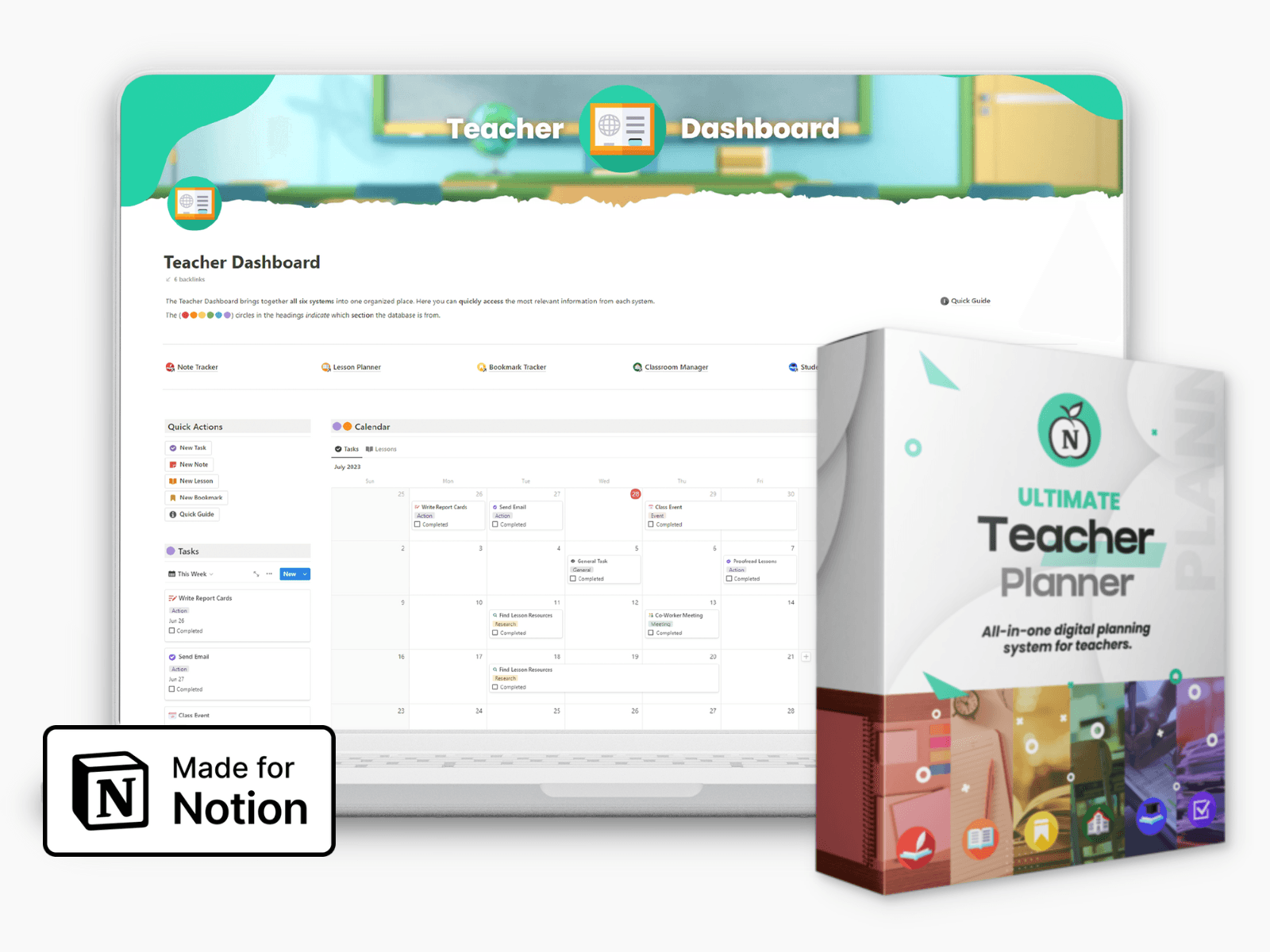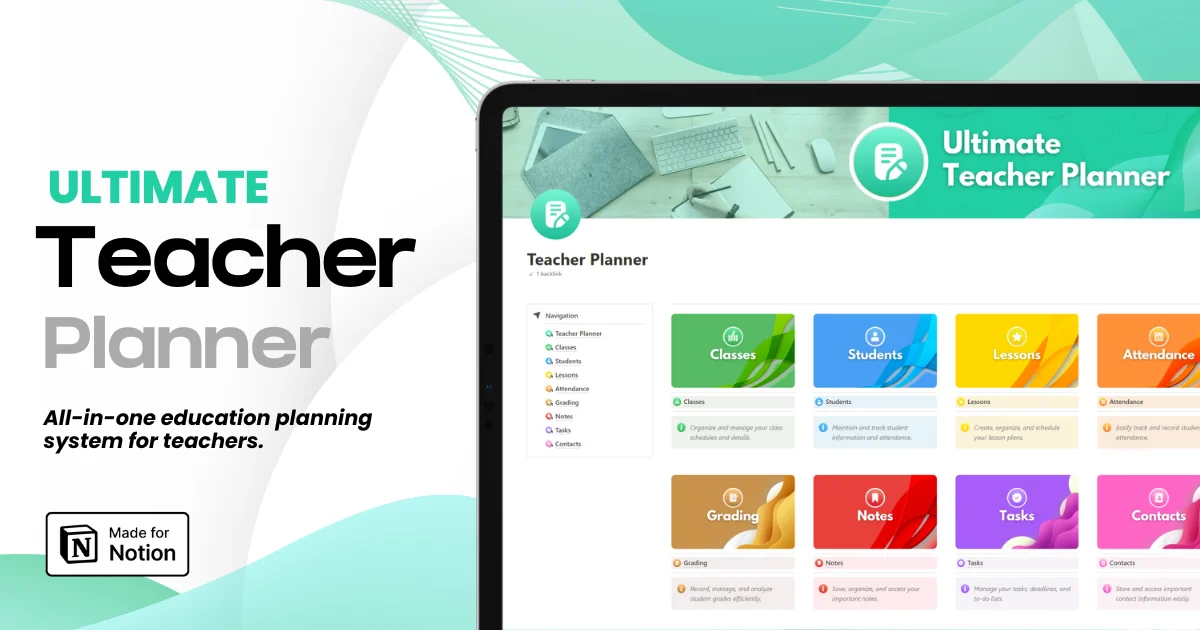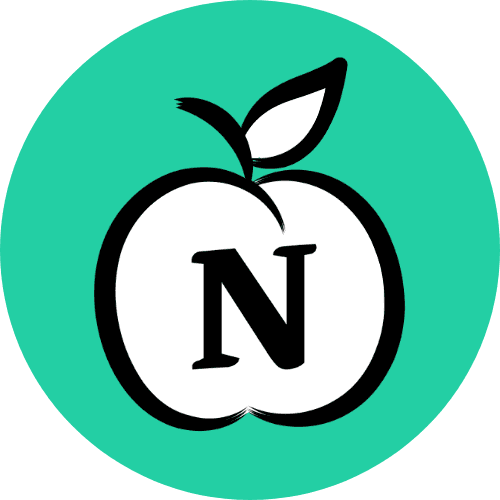

4 Planning Habits of Highly Effective Educators (You Can Start Today)
4 Planning Habits of Highly Effective Educators (You Can Start Today)
4 Planning Habits of Highly Effective Educators (You Can Start Today)


Article by
Milo
ESL Content Coordinator & Educator
ESL Content Coordinator & Educator
All Posts
Between lesson plans, grading, parent communication, and school events, teachers have a lot on their plates. However, some educators seem to handle it all like pros, remaining cool, calm, and somehow ahead of schedule. While others can’t keep up the pace. If you are the latter one, you may want to know their secret, right?
Well, it all lies in planning. They do not work for longer hours. Rather, they work smarter with proper intentional habits that keep them focused, flexible, and less stressed.
That being said, here are four planning strategies successful teachers swear by and how you can use them in your daily life, too.
Between lesson plans, grading, parent communication, and school events, teachers have a lot on their plates. However, some educators seem to handle it all like pros, remaining cool, calm, and somehow ahead of schedule. While others can’t keep up the pace. If you are the latter one, you may want to know their secret, right?
Well, it all lies in planning. They do not work for longer hours. Rather, they work smarter with proper intentional habits that keep them focused, flexible, and less stressed.
That being said, here are four planning strategies successful teachers swear by and how you can use them in your daily life, too.
Ultimate Teacher Planner
The ultimate all-in-one education management system in Notion.
Learn More

Ultimate Teacher Planner
The ultimate all-in-one education management system in Notion.
Learn More

Ultimate Teacher Planner
The ultimate all-in-one education management system in Notion.
Learn More

1. They Start with the Big Picture
Before diving into weekly or daily to-dos, effective educators zoom out and look at the year as a whole. They identify key units, testing periods, holidays, and project deadlines well in advance. This helps them avoid the last-minute scramble and create a roadmap that actually makes sense.
Even if plans change, having a long-range view makes short-term decisions easier. You can adjust your pace, shift assignments, or build in buffer time for reviews and reteaching.
To make this easier, many teachers use the right planning tools that let them see all 12 months at once. One such platform growing in popularity is Big Ass Calendar, built specifically for long-term thinkers. Their products include door-sized and wall-sized undated calendars that allow educators to block out entire semesters, color-code units or deadlines, and visually track pacing.
Because it’s dry-erase and customizable, teachers can adapt it throughout the year as plans shift. And since it’s right there on your wall, it keeps your goals visible.
In short, having that year-at-a-glance helps you teach more proactively. That is a key difference between staying ahead and constantly playing catch-up.
Beyond planning, you can use these 6 little hacks to save time in class every single day.
2. They Batch Similar Tasks
Great planners know that multitasking is a myth. Instead of jumping between lesson planning, emails, and grading all day, they block time for similar tasks in focused chunks. This is called “batching,” and it’s a game-changer for productivity.
For example:
Monday afternoons: plan next week’s lessons.
Tuesday mornings: grade assignments in batches.
Friday preps: copy worksheets, organize classroom materials.
This not only boosts efficiency but also reduces mental fatigue. This way, you will be able to work with momentum. It may feel rigid at first, but batching gives you more freedom in the long run by keeping your head clear and your workdays predictable.
3. They Prioritize Before the Day Begins
Walking into the classroom without a plan is like entering a maze blindfolded. That’s why high-functioning educators start their mornings (or wrap up the day before) by identifying their top priorities.
Instead of writing a never-ending to-do list, they choose key tasks that must get done. This could be the following:
Finalizing a lesson,
Returning parent emails, or
Prepping for an observation.
This approach helps you avoid the guilt of “I didn’t get enough done,” because you focus on progress, not perfection. And on chaotic days (because those happen), at least your most important tasks won’t fall through the cracks.
To put these habits into practice, see our guide on time management for teachers using Notion.
4. They Leave Space for the Unexpected
Even the best-laid plans get derailed due to surprise fire drills, student meltdowns, tech issues, or you name it. Smart teachers plan for that, too. They leave a little breathing room in their schedules so one disruption doesn’t throw off the entire week.
Instead of packing every minute, try adding a 10-minute buffer between activities or setting aside a flex block each week. Use it to catch up, check in with students, or just take a breather.
This habit might sound simple, but it’s one of the most underrated planning tools. It gives you control in the chaos and helps prevent burnout by reducing that constant lag feeling.
If you're struggling to stay organized, learn how to choose the right teacher planner and actually stick with it.
To Sum It All Up!
Let’s be real, teaching is unpredictable. Even the most effective educators don’t get it all done every day. But the ones who consistently thrive aren’t flying blind. They’ve developed planning habits that bring order to the chaos and help them show up for their students with more calm, more clarity, and less stress. Start with one of the habits above. Maybe it’s blocking time for planning, setting just three priorities each morning, or finally getting a big wall calendar that lets you stop flipping through 12 tabs to see what’s coming next. Because in a job where everything’s urgent and everyone needs something from you, the best gift you can give yourself is a little more control — and a little more space to breathe.
Batching tasks is easier when you use weekly planning templates for teachers to structure your week.
1. They Start with the Big Picture
Before diving into weekly or daily to-dos, effective educators zoom out and look at the year as a whole. They identify key units, testing periods, holidays, and project deadlines well in advance. This helps them avoid the last-minute scramble and create a roadmap that actually makes sense.
Even if plans change, having a long-range view makes short-term decisions easier. You can adjust your pace, shift assignments, or build in buffer time for reviews and reteaching.
To make this easier, many teachers use the right planning tools that let them see all 12 months at once. One such platform growing in popularity is Big Ass Calendar, built specifically for long-term thinkers. Their products include door-sized and wall-sized undated calendars that allow educators to block out entire semesters, color-code units or deadlines, and visually track pacing.
Because it’s dry-erase and customizable, teachers can adapt it throughout the year as plans shift. And since it’s right there on your wall, it keeps your goals visible.
In short, having that year-at-a-glance helps you teach more proactively. That is a key difference between staying ahead and constantly playing catch-up.
Beyond planning, you can use these 6 little hacks to save time in class every single day.
2. They Batch Similar Tasks
Great planners know that multitasking is a myth. Instead of jumping between lesson planning, emails, and grading all day, they block time for similar tasks in focused chunks. This is called “batching,” and it’s a game-changer for productivity.
For example:
Monday afternoons: plan next week’s lessons.
Tuesday mornings: grade assignments in batches.
Friday preps: copy worksheets, organize classroom materials.
This not only boosts efficiency but also reduces mental fatigue. This way, you will be able to work with momentum. It may feel rigid at first, but batching gives you more freedom in the long run by keeping your head clear and your workdays predictable.
3. They Prioritize Before the Day Begins
Walking into the classroom without a plan is like entering a maze blindfolded. That’s why high-functioning educators start their mornings (or wrap up the day before) by identifying their top priorities.
Instead of writing a never-ending to-do list, they choose key tasks that must get done. This could be the following:
Finalizing a lesson,
Returning parent emails, or
Prepping for an observation.
This approach helps you avoid the guilt of “I didn’t get enough done,” because you focus on progress, not perfection. And on chaotic days (because those happen), at least your most important tasks won’t fall through the cracks.
To put these habits into practice, see our guide on time management for teachers using Notion.
4. They Leave Space for the Unexpected
Even the best-laid plans get derailed due to surprise fire drills, student meltdowns, tech issues, or you name it. Smart teachers plan for that, too. They leave a little breathing room in their schedules so one disruption doesn’t throw off the entire week.
Instead of packing every minute, try adding a 10-minute buffer between activities or setting aside a flex block each week. Use it to catch up, check in with students, or just take a breather.
This habit might sound simple, but it’s one of the most underrated planning tools. It gives you control in the chaos and helps prevent burnout by reducing that constant lag feeling.
If you're struggling to stay organized, learn how to choose the right teacher planner and actually stick with it.
To Sum It All Up!
Let’s be real, teaching is unpredictable. Even the most effective educators don’t get it all done every day. But the ones who consistently thrive aren’t flying blind. They’ve developed planning habits that bring order to the chaos and help them show up for their students with more calm, more clarity, and less stress. Start with one of the habits above. Maybe it’s blocking time for planning, setting just three priorities each morning, or finally getting a big wall calendar that lets you stop flipping through 12 tabs to see what’s coming next. Because in a job where everything’s urgent and everyone needs something from you, the best gift you can give yourself is a little more control — and a little more space to breathe.
Batching tasks is easier when you use weekly planning templates for teachers to structure your week.
Ultimate Teacher Planner
The ultimate all-in-one education management system in Notion.
Learn More

Ultimate Teacher Planner
The ultimate all-in-one education management system in Notion.
Learn More

Ultimate Teacher Planner
The ultimate all-in-one education management system in Notion.
Learn More

2025 Notion4Teachers. All Rights Reserved.
2025 Notion4Teachers. All Rights Reserved.
2025 Notion4Teachers. All Rights Reserved.
2025 Notion4Teachers. All Rights Reserved.








